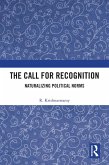In Sharing Territories, Cara Nine defends a river model of territorial rights. On a river model, groups are assumed to be interdependent and overlapping. If we imagine human settlements and territorial rights as established in river catchment areas-not on lands with walls and borders-the primary features of group life are not independence and distinctness. Drawing on natural law philosophy, Nine's theory argues for the establishment of foundational territories around geographical areas like rivers. Usually lower-scale political entities, foundational territories overlap with and serve as the grounding blocks of larger territorial units. Examples of foundational territories include not only river catchment areas but also urban areas, drawn around individuals who hold obligations to collectively manage their surroundings. Foundational territorial authorities manage spatially integrated areas where agents are interconnected by dense and scaffolded physical circumstances. In these areas, individuals cannot fulfil their natural obligations to each other without the help of collective rules. As foundational territories overlap the territories of other political units, Nine frames a theory of nested and shared territorial rights, and argues for insightful changes to the allocation of resource rights between political groups and individuals.
Dieser Download kann aus rechtlichen Gründen nur mit Rechnungsadresse in A, B, BG, CY, CZ, D, DK, EW, E, FIN, F, GR, HR, H, IRL, I, LT, L, LR, M, NL, PL, P, R, S, SLO, SK ausgeliefert werden.
Hinweis: Dieser Artikel kann nur an eine deutsche Lieferadresse ausgeliefert werden.









